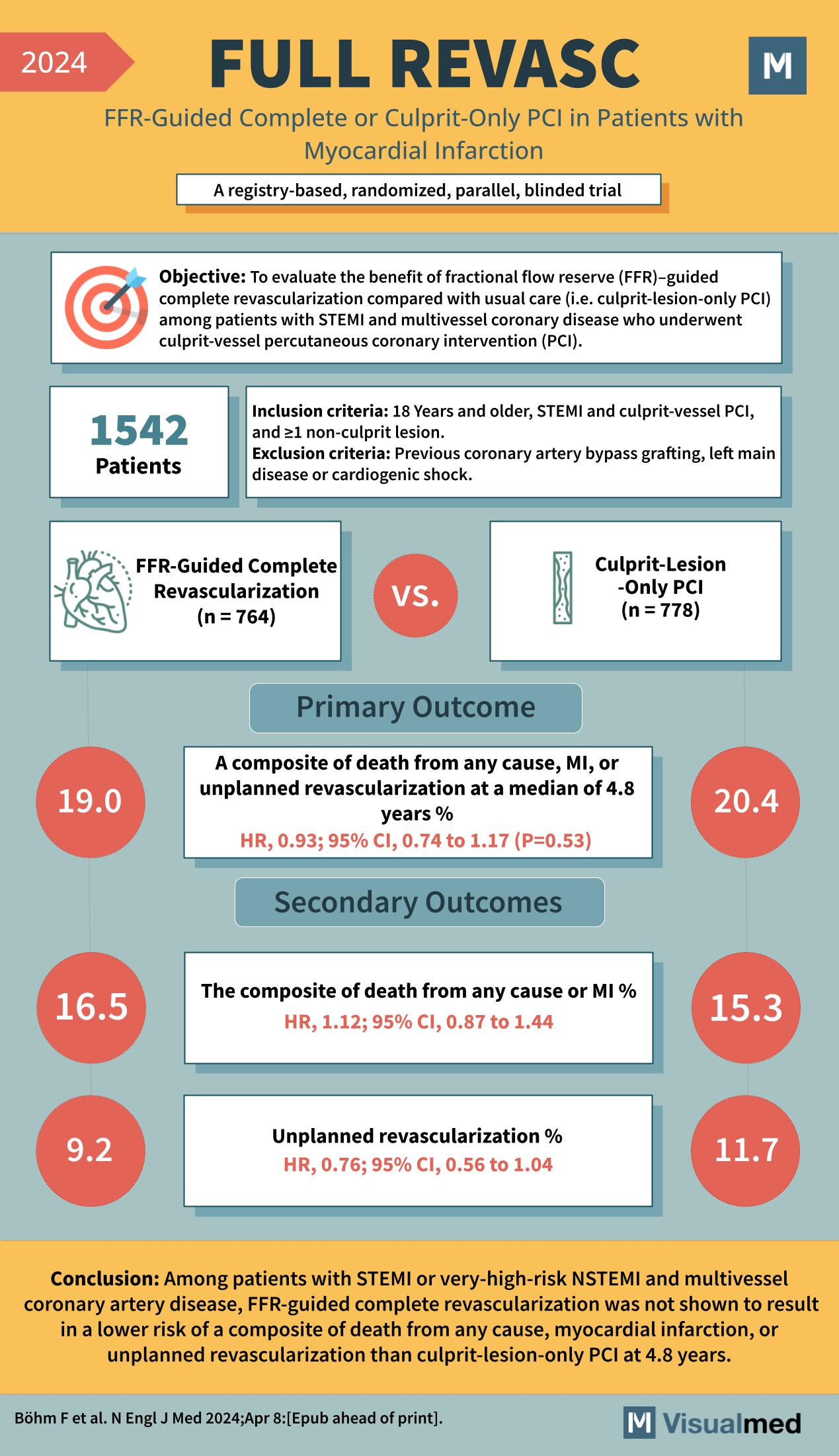
Year: 2024 Title: FULL REVASC Subtitle: FFR-Guided Complete or Culprit-Only PCI in Patients with Myocardial Infarction Type of Trial: A registry-based, randomized, parallel, blinded trial
Objective: To evaluate the benefit of fractional flow reserve (FFR)–guided complete revascularization compared with usual care (i.e., culprit-lesion-only PCI) among patients with STEMI and multivessel coronary disease who underwent culprit-vessel percutaneous coronary intervention (PCI).
Patients: 1542
Inclusion Criteria:
- 18 Years and older
- STEMI and culprit-vessel PCI
- ≥1 non-culprit lesion
Exclusion Criteria:
- Previous coronary artery bypass grafting
- Left main disease
- Cardiogenic shock
Groups:
- FFR-Guided Complete Revascularization (n = 764)
- Culprit-Lesion-Only PCI (n = 778)
Primary Outcome:
- A composite of death from any cause, MI, or unplanned revascularization at a median of 4.8 years %
- HR, 0.93; 95% CI, 0.74 to 1.17 (P=0.53)
- FFR-Guided Complete Revascularization Group: 19.0%
- Culprit-Lesion-Only PCI Group: 20.4%
Secondary Outcomes:
- The composite of death from any cause or MI %
- FFR-Guided Group: 16.5%
- Culprit-Lesion-Only PCI Group: 15.3%
- Unplanned revascularization %
- FFR-Guided Group: 9.2%
- Culprit-Lesion-Only PCI Group: 11.7%
Conclusion: Among patients with STEMI or very-high-risk NSTEMI and multivessel coronary artery disease, FFR-guided complete revascularization was not shown to result in a lower risk of a composite of death from any cause, myocardial infarction, or unplanned revascularization than culprit-lesion-only PCI at 4.8 years.
Reference: Böhm F et al. N Engl J Med 2024; DOI: 10.1056/NEJMoa2401479